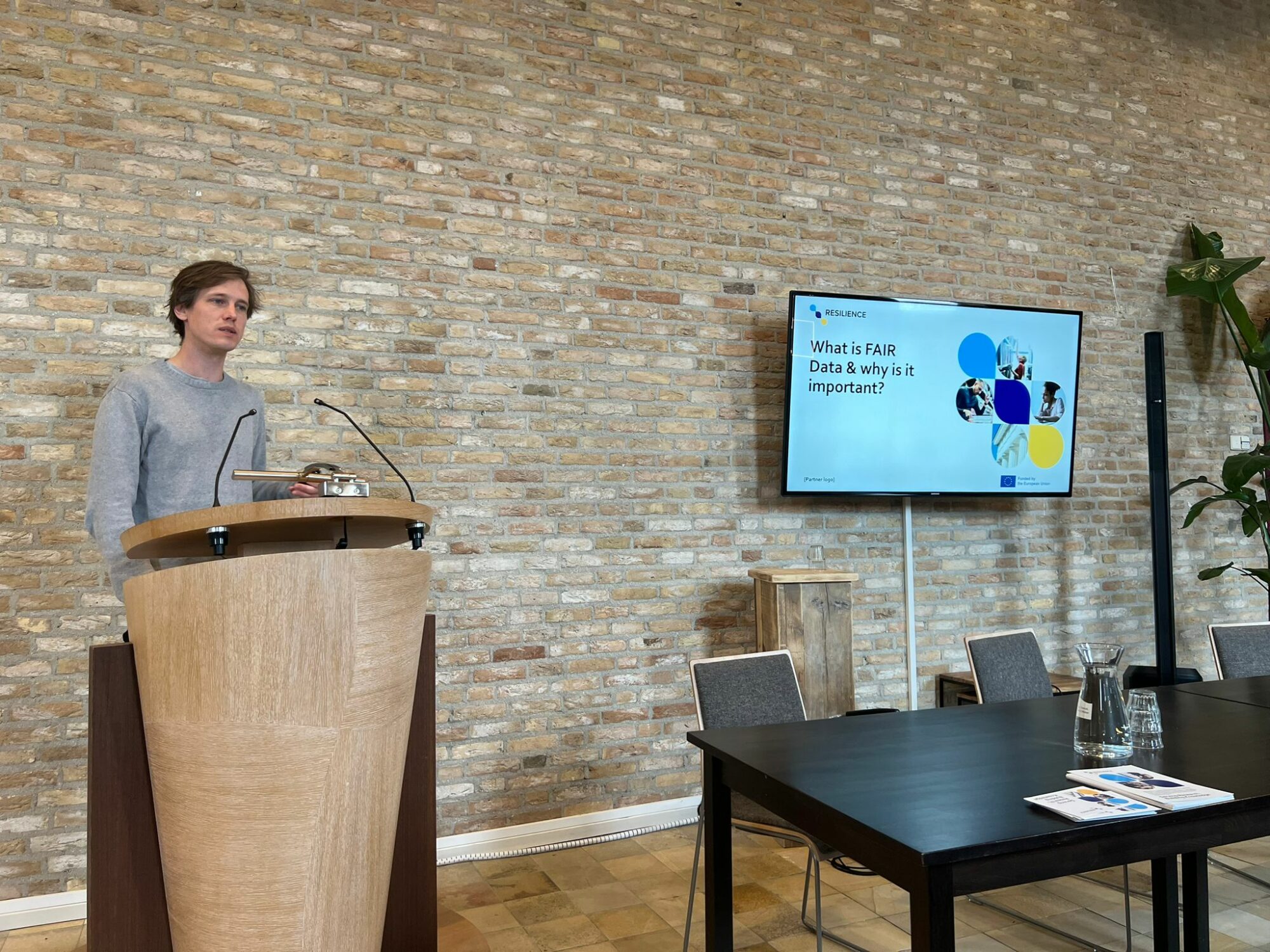Support from RESILIENCE for Modern Forms of Empirical Research
A Research Infrastructure for Religious Studies is also relevant to modern forms of empirical research that include, for example, media and social media.
Future
Over 30 people, mostly graduate researchers, attended the RESILIENCE session held at NOSTER’s (the Dutch Graduate School for Theology and Religious Studies) Spring Conference on the question “Is there a digital (?) future for Religious Studies?” The majority of these researchers are engaged in empirical research. They were interested in information about data management and storage, as presented by Michiel De Clerck (KU Leuven/LIBIS), as well as in online research tools and methodology, input provided by Dutch researcher Dr. Ernst van den Hemel of the Meertens Instituut.
Data
The answer to the question raised by RESILIENCE was a clear “yes”. The digital aspect is not only revealed in data collection, but also in data handling and data storage. Data collection for example can be done via social media like Twitter, or via recorded oral interviews. Next comes the collecting and storing of this data according to the FAIR (findable, accessible, interoperable and reusable) principles, as well as handling this data confidentially and ethically correct.
Support
A research infrastructure for Religious Studies can help scholars in this by offering advice on best practices and by supporting them with technical solutions. For example, while interviewing refugees about their personal belief, the data must be stored and processed anonymously and this should be guaranteed, but not all research institutions offer support for this or are aware of what specific extra challenges this brings when dealing with religion.

Image: Michiel De Clerck, KU Leuven/LIBIS
Research Infrastructure for Religious Studies Needed
Herman Selderhuis (Theological University of Apeldoorn) emphasized in his contribution that a separate research infrastructure for Religious Studies is necessary, also because of the fact that the impact of religion as a phenomenon stretches across politics, society, individual wellbeing, and more. Besides, it is difficult to accommodate religion among other disciplines. Here, many people agreed, but there was also the remark that a separate research infrastructure for Religious Studies would perhaps give the impression that religion is something that stands alone and asks for a different academic approach.
Needs of Scholars
There was also discussion about the needs of scholars: what do they need to improve their research or to make it easier? Among the responses to this question were: support in data management, easy access to sources, translation tools, etc. It is up to RESILIENCE to further explore these needs and take them into account in the further development of its services.